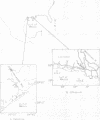Abstract
Two crude oils, South Louisiana and Kuwait, were examined for their impact on glucose utilization by bacterial populations from the Gulf of Mexico. The uptake and mineralization of [U-14C]glucose was assayed after a 4- to 23-h exposure to various concentrations of added crude oil (0, 0.001, 0.01, and 0.1% [vol/vol]). The effects of oil were determined in a total of 15 sediment and 13 water samples collected from offshore, open-bay, and salt marsh environments. The utilization of glucose by bacterial populations usually was not affected by added oil; in 10 sediment and 11 water samples, oil had no significant effect on either glucose uptake or mineralization. Stimulation by oil was recorded in four sediment samples. Oil inhibition occurred in one sediment and two water samples, but only in the presence of the highest concentration of added oil, i.e., 0.1%. Our data suggest that short-term exposure to either South Louisiana or Kuwait crude oil, even at 0.1%, usually has no toxic effect on glucose utilization by marine bacterial populations.
Full text
PDF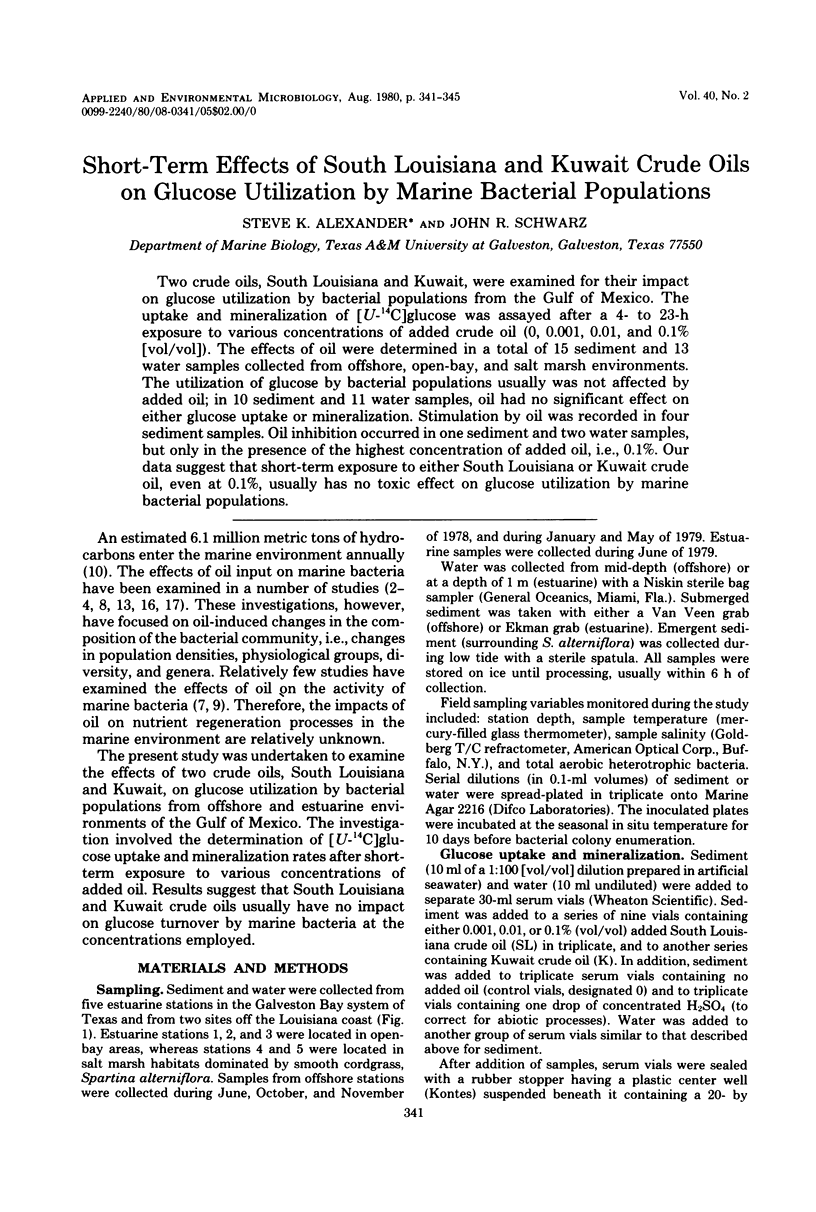
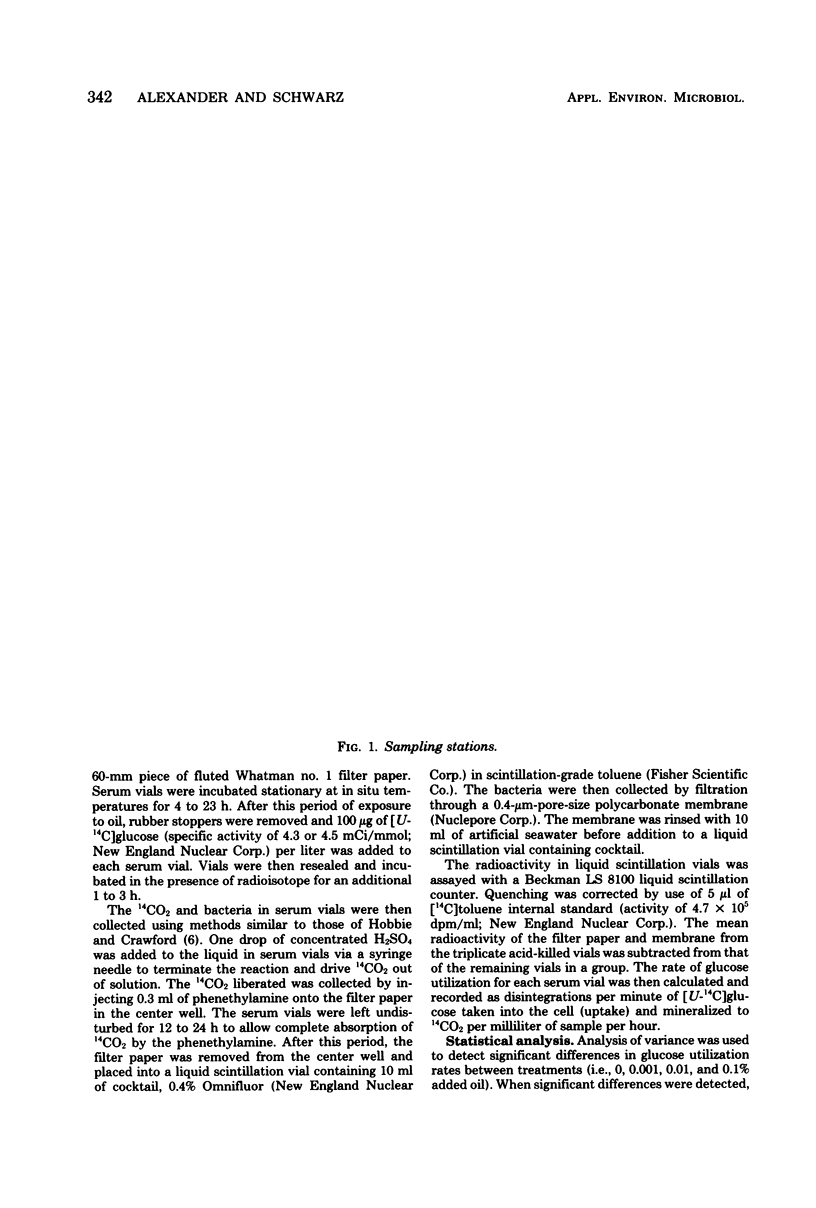
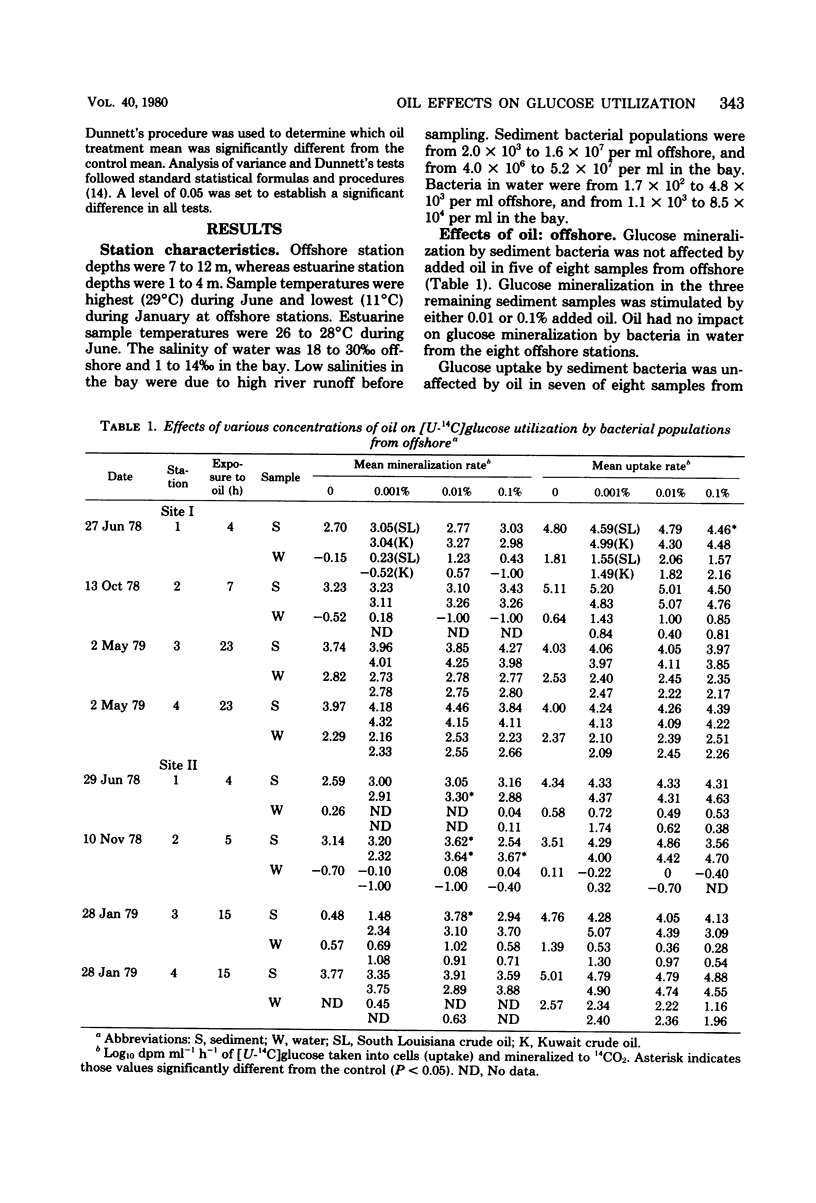
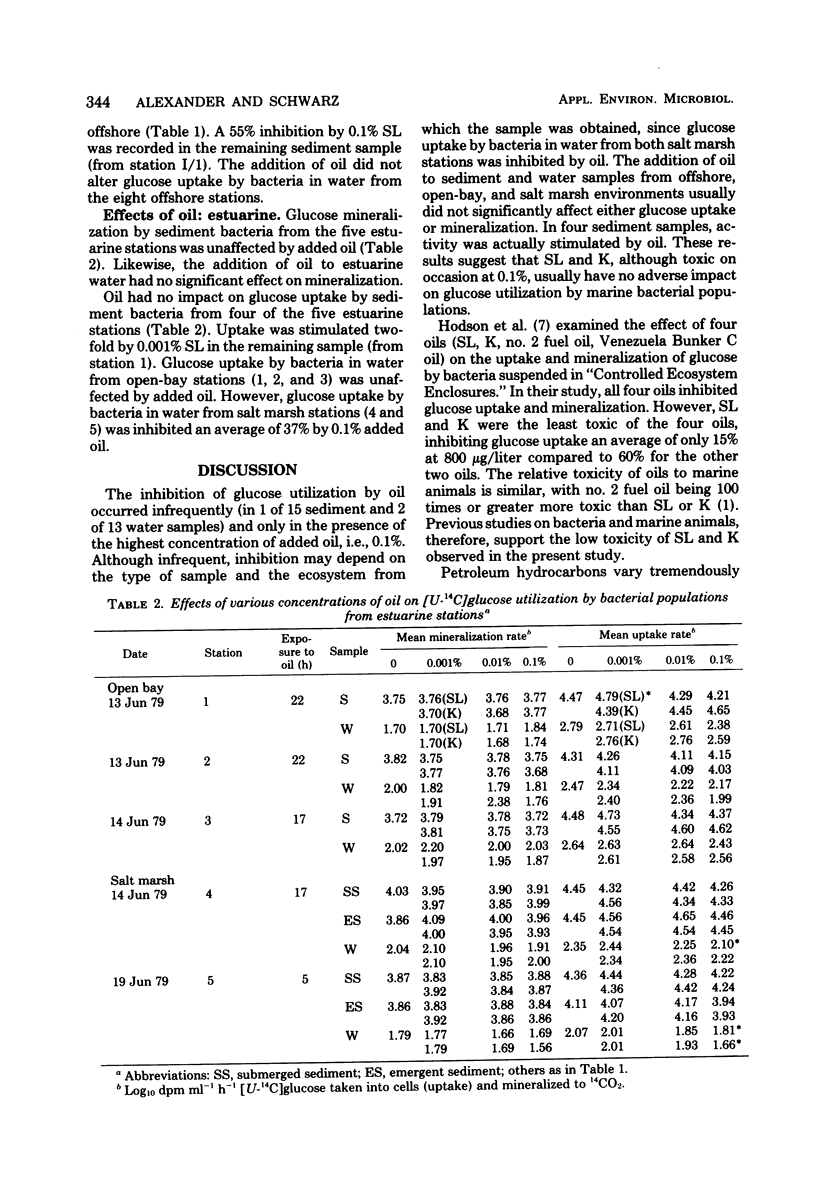
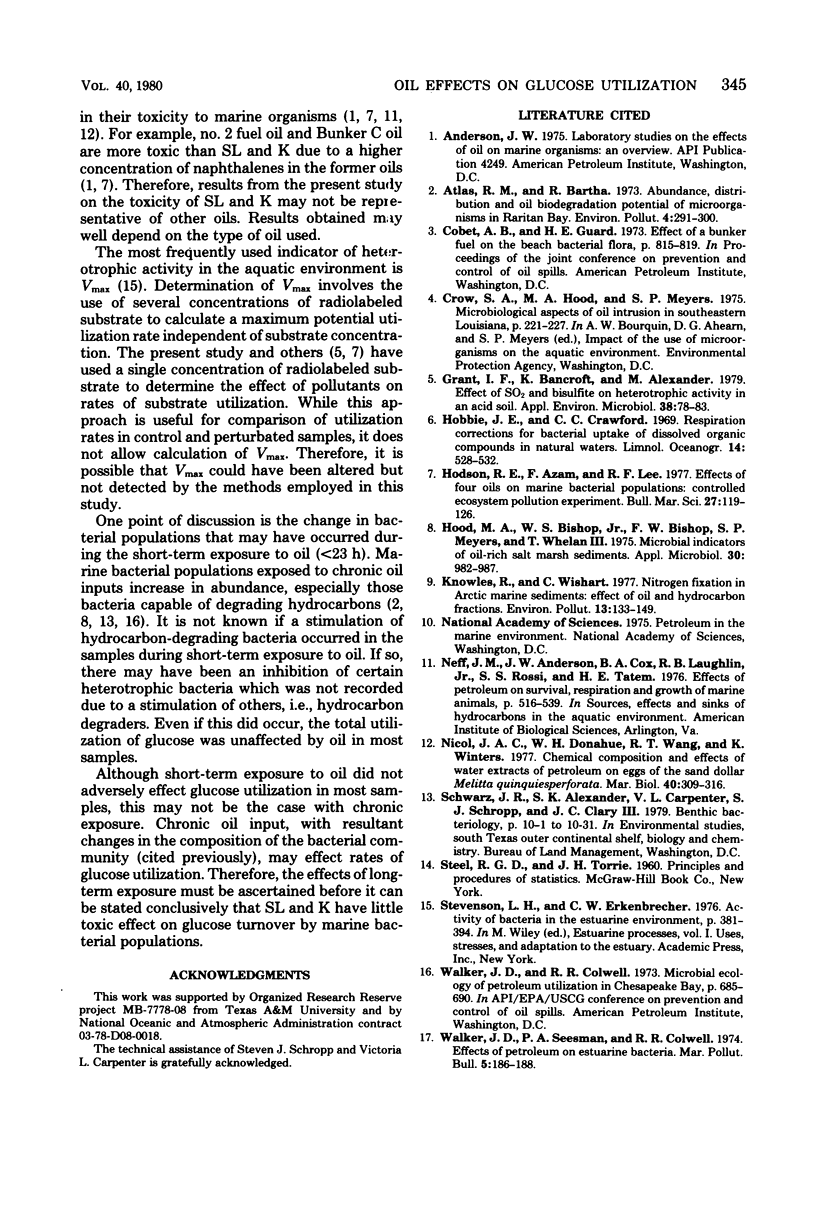
Images in this article
Selected References
These references are in PubMed. This may not be the complete list of references from this article.
- Grant I. F., Bancroft K., Alexander M. Effect of SO2 and bisulfite on heterotrophic activity in an acid soil. Appl Environ Microbiol. 1979 Jul;38(1):78–83. doi: 10.1128/aem.38.1.78-83.1979. [DOI] [PMC free article] [PubMed] [Google Scholar]
- Hood M. A., Bishop W. S., Bishop F. W., Meyers S. P., Whelan T. Microbial indicators of oil-rich salt marsh sediments. Appl Microbiol. 1975 Dec;30(6):982–987. doi: 10.1128/am.30.6.982-987.1975. [DOI] [PMC free article] [PubMed] [Google Scholar]



